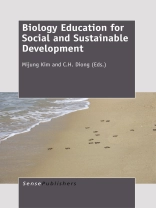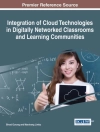In an era of globalization and urbanization, various social, economic, and environmental challenges surround advances in modern biological sciences. Considering how biological knowledge and practice are intrinsically related to building a sustainable relationship between nature and human society, the roles of biology education need to be rethought to respond to issues and changes to life in this biocentury. This book is a compilation of selected papers from the Twenty Third Biennial Conference of the Asian Association for Biology Education 2010. The title, Biology Education for Social and Sustainable Development, demonstrates how rethinking and reconstruction of biology education in the Asia-Pacific region are increasingly grounded in deep understandings of what counts as valuable local knowledge, practices, culture, and ideologies for national and global issues, and education for sustainable development. The 42 papers by eminent science educators from Australia, China, Philippines, Singapore, Taiwan, and the U.S., represent a diversity of views, understandings, and practices in biology education for sustainable development from school to university in diverse education systems and social-cultural settings in the Asia-Pacific region and beyond. The book is an invaluable resource and essential reference for researchers and educators on Asian perspectives and practices on biology education for social and sustainable development.
Inhoudsopgave
Foreword; Message from the Editors; List of Contributors; I. Theme 1: Visions and Challenges of Biology Education for Sustainability: Keynote Papers; 1. Linking Education to Socially-Relevant Bioentrepreneurship for Sustainable Development; 2. Promoting Public Understanding of Sustainable Development: Opportunities for Science Education; 3. Actions and Opportunities: a North American Perspective on Undergraduate Biology Education for Social and Sustainable Development; 4. From Gene to Education – The ECNG Research Framework: Education, Cognition, Neuroscience, and Gene; 5. Biology Education in China 2000–2010: Curricular Trends and Teacher Preparation Models for a Changing Society; 6. Biology Education in the Future; II. Theme 2: Biology, Community, and Higher Education; 7. A Visualisation Tool for Experiential Learning in Environmental Science: Using Football Fields, Agricultural Fields and Waterways to Illustrate the Implication of Different Water Allocation Decisions; 8. Using Metacognition as a Tool to Advance Reading Comprehension in a Science Class; 9. De La Salle-College of Saint Benilde in the Philippines: Making a Difference in Sustainable Development; 10. Oil Producing Plants as Alternative Source of Energy for Sustainable Development; 11. Research as an Integral Component of Biology Education in Philippine Schools; 12. Biology for Non-Majors at the University of the Philippines Diliman Extension Program in Pampanga (UPDEPP): Learning Sexually Transmitted Diseases Minus the Squirms; 13. An Assessment of the Pantabangan Reforestation, Livelihood and other Community Involvement Projects of La Consolacion College of Manila, Philippines; 14. Indigenous Knowledge and Taxonomy of Bats in Loboc Watershed Forest Reserve, Bohol, Philippines; 15. Anatomical Characterization of Oil Cells and Oil Cavities in Jatropha curcas L. using Light and Electron Microscopy; 16. Extent of Escherichia coli Contamination of Cagayan de Oro River and Factors Causing Contamination; 17. Biophysico-Chemical and Socioeconomic Study of Two Major Manila Esteros; 18. Sustainable Intensification of Agricultural Production: The Essential Role of Ecosystem-Literacy Education for Smallholder Farmers in Asia; III. Theme 3: Teaching Practice & Student Learning of Biology and the Environment; 19. Improving Science Learning through Writing-to-Learn Strategy: Writing Claimand Evidence in Classroom Teaching; 20. The Influence of Prompts on Students’ Thinking Processes in Dinosaur Exhibits; 21. The Development and Evaluation of an Inquiry-Based Lesson on ‘Plants’; 22. Effectiveness of Concept Mapping Strategies for Science Learning in 6th Grade; 23. A Study of 1st Graders’ Science Learning on Biodiversity at Taipei Zoo, Taiwan; 24. Correlates of Achievement Test Performance in Biology 1 of Second Year Students in the Philippine Science High School-Central Visayas Campus, Argao, Cebu from 2007–2010; 25. Developing a Social Constructivist Teaching and Llearning Module on DNA for High School Students in Thailand; 26. A Designed-and-Developed Biology Laboratory Kit for Rural High School Students in Philippines; 27. Exploring Middle School Students’ Attitudinal Changes Towards Science through Participation in Club Activities in Creating and Publishing a Science Magazine; 28. Designing and Field Testing of Remedial Material to Rectify Students’ Misconceptions in Biology at the Secondary School Level; 29. An Exploration of Biological Concept Formation in the Classroom; 30. Students’ Knowledge Integration and Decision Making: Learning from Collaboration during Environmental Field Study; 31. Importance of Lecture Feedback in H2 Biology Lectures in a Junior College; IV. Theme 4: Developing Teacher Education & Biology Science Curriculum; 32. Orchestrating Biology Instruction: Teaching Students to Yearn for Knowledge; 33. Enhancing Elementary Biology Education of Undergraduate Students in Japanese University Through Teachers’ Teaching Proficiencies; 34. Teachers’ View on Relationship between Outdoor Environmental Education and a Sense of Place; 35. What Makes a Science Teacher Excellent: Beliefs; 36. A Comparison of Life Science and Environmental Education in Japan and Ukraine: A Need to Improve the Science Curriculum of Two Countries; 37. A Study of the Value of Education in the History of Bioscience to the Training of Students’ Innovative Thinking Skills; 38. Fostering Creativity and Sustainability Through the 2009 Science Curriculum in Korea; 39. Development of Meaningful Reception Learning in Japan: A Case Study; 40. Singapore Students’ Learning Experiences on Sustainable Development: A Review of the Roles of Civil Society and External Organisations; 41. University Students’ Perceptions of Common-Resource Dilemmas – The Need for Adjusted Curriculum in Indonesia; 42. Empowering Biology Teachers through Development of Content and Pedagogical Content Knowledge; Index.












